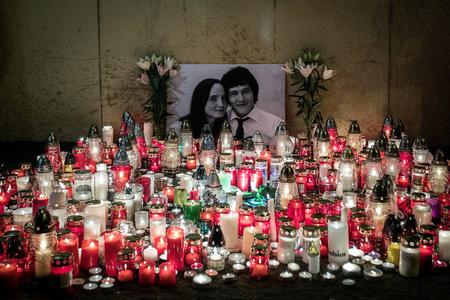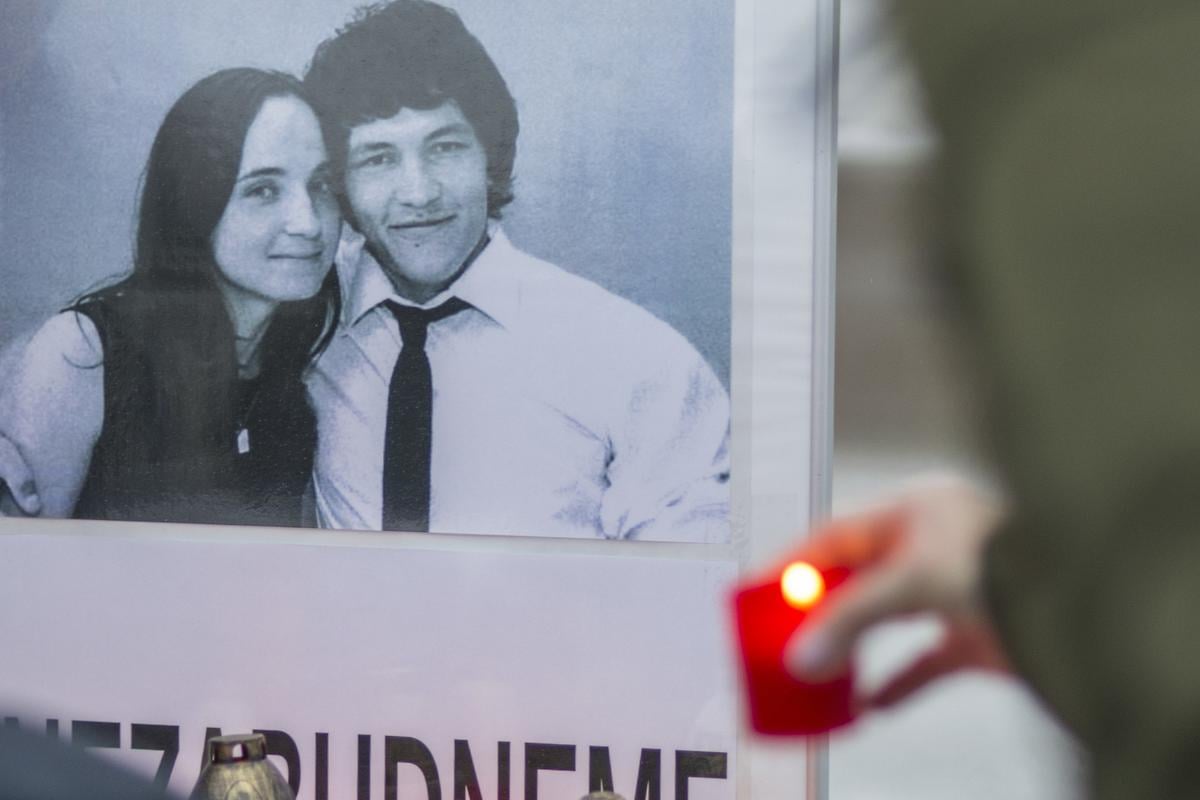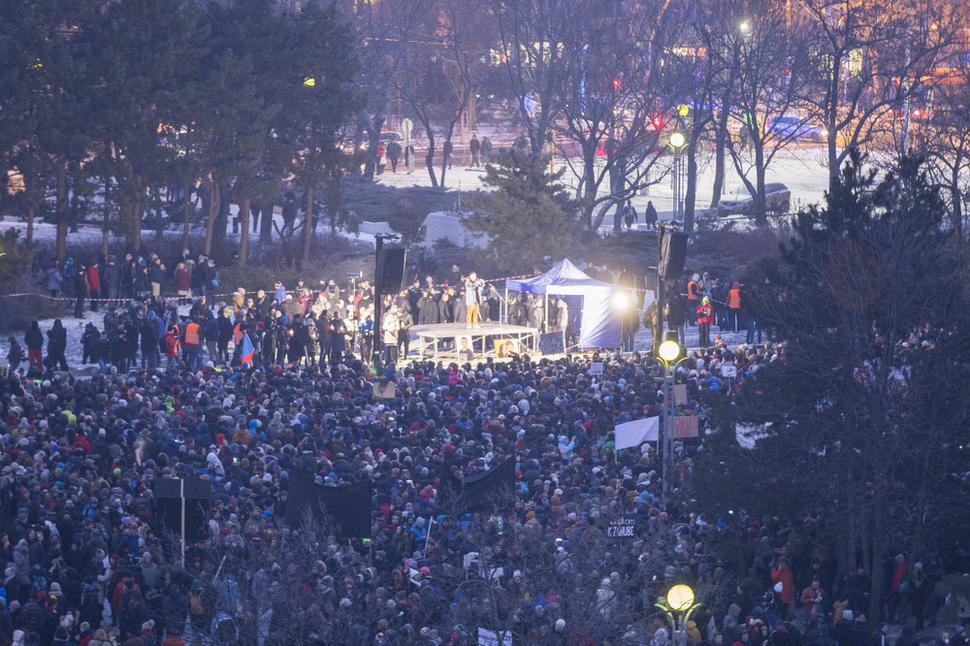Read how the murder of a journalist changed Slovakia in many walks of life:
- How is the trial developing?
- Government
- Civil society
- Political scene
- Police
- Judiciary and prosecution
- Other criminal cases: Gorilla, promissory notes, Bonaparte
- Media
Two years have passed since investigative reporter Ján Kuciak was killed in his house in Veľká Mača. His fiancée Martina Kušnírová was shot dead along with him. Very soon after their dead bodies were discovered on February 26, 2018, the police said that the murder was most likely linked to Kuciak’s journalistic work.
Unlike most cases of murdered journalists in the world, the police detained and charged not just the persons whom they believe to have fired the shots, but also those who ordered the murder. The trial will start within two years since the murder occurred.
>>> Who was Ján Kuciak and how did he become a journalist?
>>> What was the development on the Slovak political scene in the immediate days after the murder?
>>> Slovakia: Timeline of events during the first year after the murder
The trial with Marián Kočner, Alena Zsuzsová, Tomáš Szabó and Miroslav Marček started on January 13, 2020. Zoltán Andruskó, who has admitted to having acted as the middleman between those who ordered the murder and those who executed it, was sentenced to 15 years in prison on December 30, 2019 in a separate proceeding, based on his plea bargain deal. He has thus become an important witness in the case against the four persons.
>>> Who are the people charged in the murder case?

For Slovakia, the murder of a journalist was an unprecedented event and it quickly became clear that it would be a watershed moment, particularly given the immediate reaction among the public. The protests that followed forced then PM Robert Fico to step down with his third government, and major reshuffles in the cabinet followed.
The movement that emerged from the protests has since had an impact on party politics in Slovakia. The protests were also seen as one of the driving forces behind the election of current President Zuzana Čaputová.
As the investigation of the murder progressed and as media published various materials leaked to them in the process and facts they found while working on stories, including some that Kuciak himself had been working on before he was killed, Slovakia’s public learned many disturbing details about how the state and its bodies had been working. Ties between ruling politicians and high state officials and judges to the criminal environment have been uncovered.
Two years of disturbing revelations in the press on a regular basis have led to considerable frustration among voters. Observers believe this to be reflected in the growing support for extremist movements. On the other hand, many, including President Čaputová, see the events of the past two years as an opportunity for Slovak society to cleanse itself.
"The problems we are facing are far from small, but I trust that thanks to honest and professional investigators and prosecutors we are seeing a cleansing process today,” Čaputová said in her New Year’s address on January 1.
The 2020 parliamentary election, taking place on February 29 (only days after the second anniversary of the murder) has thus been dubbed one of the most important votes in Slovakia’s 27-year history.
How is the trial developing?
The main trial started on Monday, January 13, 2020.
All four defendants and the prosecutor repeated that they were not interested in seeking a plea bargain. This was the outcome of the preliminary session of the trial that took place on December 19, 2019.
Zoltán Andruskó is the only one of the five people charged in connection with the murder who has cooperated with the investigators. He confessed to having passed the order from Alena Zsuzsová, a close collaborator of Marian Kočner, to the hitmen, Miroslav Marček and Tomáš Szabó. He cooperated with the police soon after he was detained in September 2018. As a result, he was able to close a deal on guilt and punishment with the prosecutor. The court approved the deal on December 30, 2019. Andruskó received 15 years in prison for his part in the crime and became an important witness.



 Illustrative stock photo (source: TASR)
Illustrative stock photo (source: TASR)
 About 25,000 people gathered in Bratislava on March 2 in memory of murdered investigative journalist Ján Kuciak and his fiancée Martina Kušnírová. (source: SITA)
About 25,000 people gathered in Bratislava on March 2 in memory of murdered investigative journalist Ján Kuciak and his fiancée Martina Kušnírová. (source: SITA)